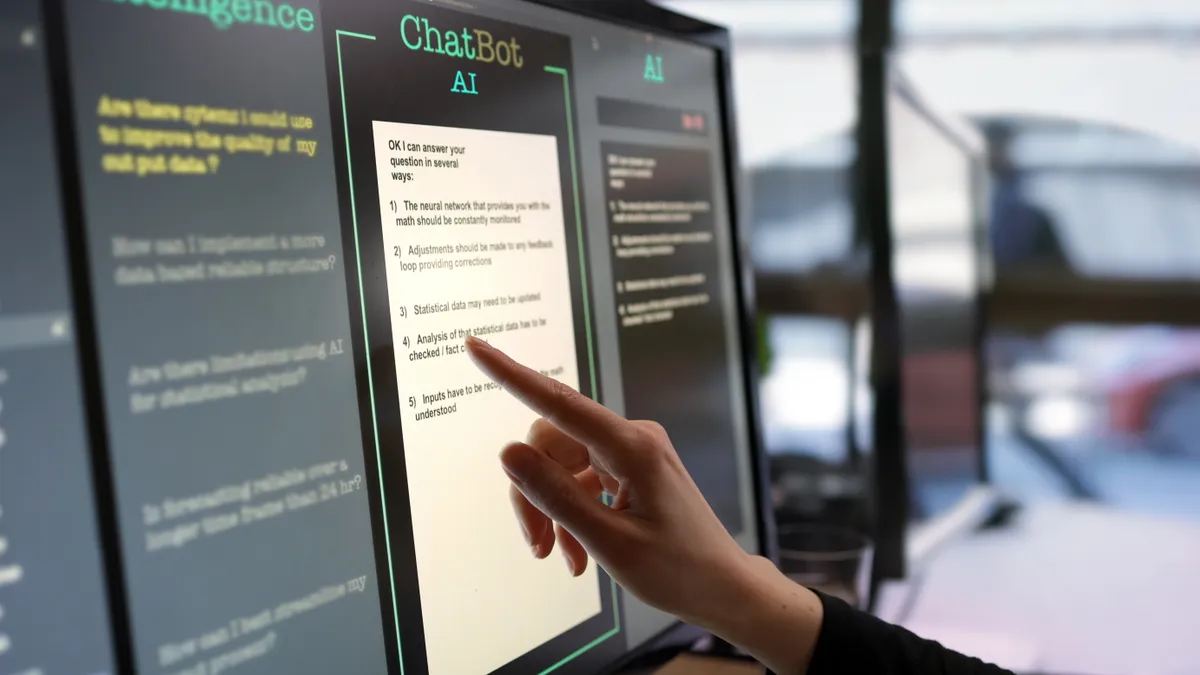CAMBRIDGE, Mass. — When CIOs gather to talk shop, broad topics such as digital transformation and change management are almost always on the agenda. But this year, one development has proven nearly impossible to avoid.
“We can’t move on in this conversation until we mention the word that everyone is mentioning — AI, or generative AI,” said George Westerman, senior lecturer at MIT Sloan School of Management, during a panel he moderated at last week’s MIT Sloan CIO Symposium.
In the nearly six months since OpenAI unleashed ChatGPT, vendors and businesses have been racing to find enterprise applications for the technology, even as data privacy and security concerns led some companies to impose strict limitations or full-fledged bans on its use.
CIOs must assess the risks against the potential rewards of emerging technologies, and look beyond the hype for practical use cases.
“We're bullish on it,” Tom Peck, EVP and chief information and digital officer at Sysco, said during a panel. “But we’re still trying to figure out whether to build versus buy, and why software companies keep renaming products and saying, ‘this is our new AI-infused version.’”
Deepa Soni, EVP and CIO at The Hartford, said her company is already running predictive AI models in many of its systems, “all the way from sales to servicing claims to underwriting.”
Soni’s team is looking at a number of potential applications for generative AI and proceeding judiciously, she said.
“We already have a slew of use cases that we think it will be applicable for and we are going through experiments now to get hands-on experience,” Soni said. “It's all about preparing to use it securely and safely.”
Sysco has leveraged native AI capabilities across its software estate, too, according to Peck.
The global food distribution company is now looking for ways to responsibly deploy generative AI in customer-facing applications, said Peck, who mentioned the possibility of curating menus and recipes for Sysco customers based on heuristics and search patterns.
Early adopters
Carmax’s use of generative AI tools predates ChatGPT’s public release, going back more than a year, according to Shamim Mohammad, the automobile retailer’s EVP and chief information and technology officer.
The Carmax business model is partly built around extensive customer and product reviews, a text-heavy feature that was well suited to generative AI's capabilities.
“We’ve been using GPT to look at the content that’s available and organize it in a way that makes sense for each customer,” Mohammad said during a panel.
Carmax has a system to check each entry’s accuracy before it goes live.
Looking ahead, Mohammad sees potential for applications in improving efficiency in the engineering process.
“All of us are struggling to find technologists,” he said. “If we can use generative AI in a safe way, that’s going to make [engineering] more productive and allow us to focus our energy on high-value human tasks.”
The Hartford has an AI accelerator group currently looking at AI applications across engineering, Soni said. The insurer is also considering uses for non-tech staff.
“Right now, we’re thinking about how we can augment the capabilities of all of our knowledge workers,” said Soni.
Like Carmax, Sysco and many other companies, The Hartford is exploring generative AI’s potential to enhance existing technologies and business practices.
“In insurance, everything is based on using data to evaluate risk,” Soni said. “Anything that renders better decisions with larger amounts of data is critical.”












